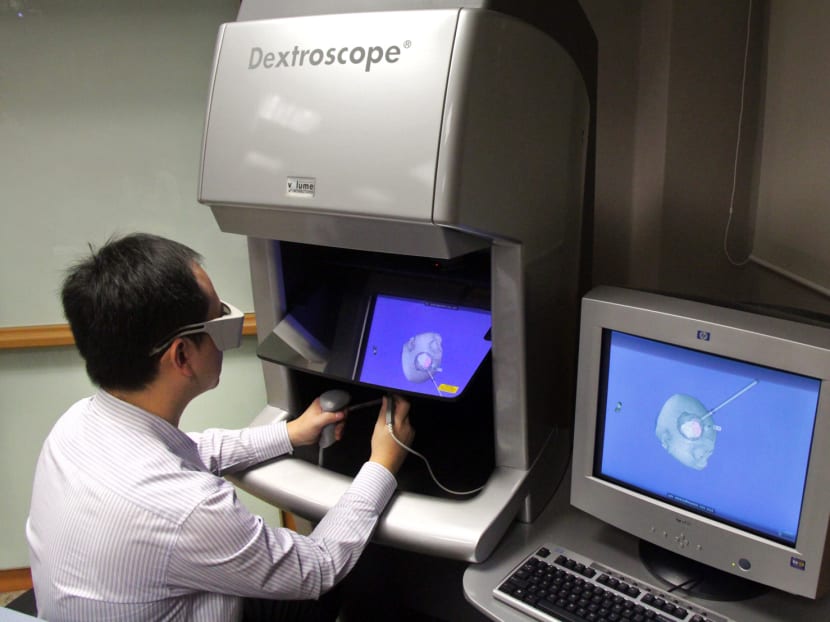New NUS collaboration to improve virtual reality tools for surgeons
SINGAPORE — In time to come, virtual reality tools would allow brain surgeons practising for complex operations to not only see, but also feel the simulation of a brain.
SINGAPORE — In time to come, virtual reality tools would allow brain surgeons practising for complex operations to not only see, but also feel the simulation of a brain.
The sensation of touch for such virtual reality tools may not seem important. But knowing the texture of cranium bone, brain tissue and brain tumour helps surgeons better prepare for complicated procedures, said Associate Professor Ng Wai Hoe, medical director at the National Neuroscience Institute (NNI).
Such a tool could be the result of a Memorandum of Understanding (MOU) signed between the NNI and the National University of Singapore (NUS) yesterday (May 8) to research on therapies and technologies for neurological conditions and age-related diseases.
The existing virtual reality technology used by surgeons to practise conducting brain surgeries was developed partly by the NNI. With the new partnership, NUS researchers with medical engineering expertise could work on improving the technology by adding touch sensors.
By allowing clinicians and researchers from the two institutions to collaborate, studies can also take into account the more intricate and subtle problems and needs of patients.
For instance, a researcher can better understand traumatic brain injury by observing a patient, said Professor Nitish Thakor, director of the Singapore Institute for Neurotechnology (SINAPSE) at NUS.
“Patients need to direct the science and drive research. (Neurosurgeons can) articulate the problems and gaps in clinical experience,” said Assoc Prof Ng.
Prof Tan Eng King, director of research at the NNI, said the MOU would help reduce administrative barriers. “It really helps move things forward since time is of the essence (when doing research),” he said.
Prof Barry Halliwell, deputy president of research and technology at NUS, said the NNI would bring “enormous expertise in clinical care and translational research, which takes basic research and converts it into things that make people’s lives better”.
This will pair with the strong pure science research at NUS, he added.







